
The 2015 EU “Refugee Crisis” : Analysing the IOM’s Information Campaign in Senegal
In 2015, Europe witnessed a significant increase in the influx of migrants, commonly referred to as the “2015 EU refugee crisis.” This article explores how this “crisis” transformed the migration-development agendas. With a specific focus on IOM’s information campaign in Senegal, I argue that the EU’s post-crisis migration policy has been characterised by the securitisation and externalisation of borders, reinforcing a pre-existing development agenda that primarily serves the political interests of EU states. What makes Senegal’s information campaign noteworthy is its use of affective, emotional, and relatable content to discourage Senegalese people from embarking on “irregular” journeys, rather than resorting to explicit violence such as highly militarised border controls. Although 2015 may sound like a long time ago, this type …

Finger-Pointing Across the Channel: EU as ‘Other’ in UK Government’s Post-Brexit Discourse
Despite leaving, the EU remains the UK’s significant, constitutive other. Even post-Brexit, the British sense of self is being claimed by defining the EU as ‘Other’. Naturally, since 2016, the character of this ‘Other’ has evolved. Following the referendum, and especially Brexit itself, the UK-EU relationship has undergone a transformation of redefining each/the other. One might have expected that, once the UK had left the EU, the mutual relationship would run more smoothly. Yet, the opposite has been the case. Boris Johnson’s government was keen to pick fights with the EU and “regularly and deliberately spark arguments” with it. Since the UK (nominally and practically) left the EU on 31 December 2020, the mutual relationship has been marred by numerous …
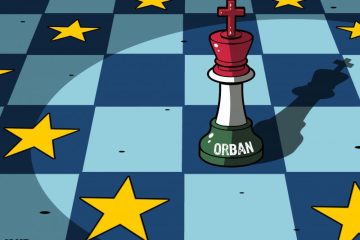
King in his own chess game: Orbán, the Hungarian “special path” and international ambitions
It was a matter of “religious freedom” – following a request from Serbia, Hungary’s veto on the sanctioning of Patriarch Kirill would have been expected. It was one of the interesting takeaways from of a few days spent in the company of pro-Fidesz politicians, pastors, and public intellectuals at the Tusványos summer festival. Gathered in the heart of Romania – home to a sizeable minority of ethnic Hungarians, about 6 per cent of the population – it struck me that Orbán’s story is not just a story of Hungary. It is a story of the region, of Europe, and of Hungary’s place in the world. A new story about Hungary When Orbán came to power for the second time in …
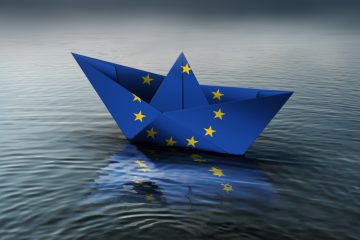
Review of Defekte Visionen. Eine Intervention zur Zukunft der Europäischen Union (Broken Visions. An Intervention on the Future of the European Union) by Alexander Thiele
What does the future of the European Union (EU) look like? Walking along the Rue de la Loi in the European Quarter in Brussels, the white and blue mural stating “The Future is Europe” by graffiti artist NovaDead sends a clear message. The bird in the right-hand corner stands for freedom and peace (referring to the values in Art. 2 of the Treaty on EU), the blue and yellow colours refer to the European flag, and the leaves recall the “green jungle” (a small forest of philodendrons) at the European Parliament in Strasbourg, which could also reflect the complex governance structure of the EU. But beyond this artistic and symbolic vision, what might the future of the EU look like …
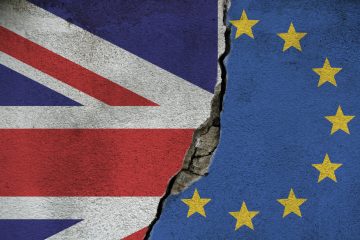
Review of Alt-Finance: How the City of London Bought Democracy by Marlène Benquet and Théo Bourgeron (Pluto Press, 2022)
For years academic literature and broader public debates have largely framed the Brexit referendum as a ‘popular revolt against the elites’. While some emphasised the role of economic factors and others boiled it down to anti-immigration attitudes, most accounts seem to converge around this bottom-up perspective that ordinary people disillusioned with the elites have driven the UK out of the EU. Conversely, apart from a few dissenting voices, the idea that economic elites have been mostly opposed to Brexit has been the prevailing view in the literature. Challenging the over-emphasis on the voting process, Marlène Benquet (University of Paris Dauphine) and Théo Bourgeron (University of Edinburgh) invite us to look more closely at the role played by the economic interests …
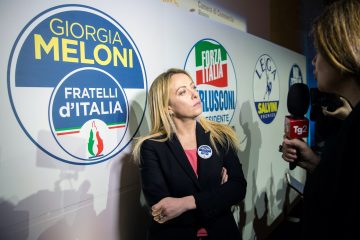
The Italian elections and the threat to European integration
The Italian right, led by the Brothers of Italy, is likely to be in government after the September 2022 elections. Despite its public statements expressing ‘full support’ for the European integration process, Giovanni Capoccia says that there are good reasons to question the exact nature of this commitment Italy heads right Mario Draghi’s successor after the general election in Italy on 25 September will likely be the leader of the right-wing party Fratelli d’Italia (Brothers of Italy), Giorgia Meloni. Currently polling at 23–24% of the vote, the party is the largest member of the centre-right coalition. In this coalition, the ‘right’, which includes the League (Lega, currently 13–14% in the polls), dominates the ‘centre’. The alliance is expected to secure a clear majority of seats …
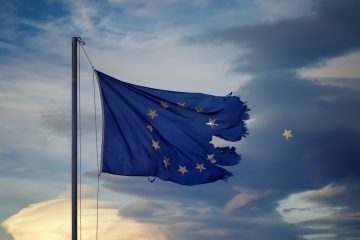
Can Europe Make It? The EU After Brexit
Brexit has weakened populists on the continent? This is wishful thinking. No longer willing to leave the EU, instead populists are determined to take it over. Brexit is a moving target. Each time we think we have a deal, the British House of Commons decides to re-think. It’s like the famous passage from T.S. Eliot: “Time yet for a hundred indecisions/And for a hundred visions and revisions,/ Before taking a toast and tea.” Boris Johnson expected the Parliament to approve the exit deal he reached with the EU. Instead, the Parliament voted for an amendment tabled by a Tory MP, Sir Oliver Letwin. The amendment withholds approval of the deal, until the legislation to enact it is safely passed – …
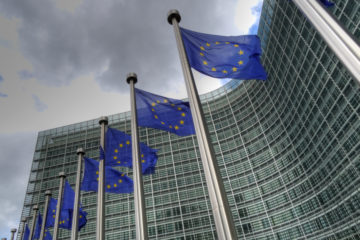
Fiscal Reform in the Eurozone – A Complex Political Issue
With Brexit looming over the health of the European economy and Trump imposing $7.5 billion tariffs on European imports to the United States, the Eurozone faces political challenges. Pitted along a spectrum ranging from pro-stimulus to pro-austerity positions, different politicians advocate for distinct economic futures for the Eurozone. The situation is further complicated by trade disputes, macroeconomic pressures, and a slowing European economy. The outcome of fiscal reform in the Eurozone will depend on who ends up controlling European economic and monetary politics. To address the growing threat to the European economy, the European Union (EU) has confirmed Paolo Gentiloni as the new European Commissioner for Economic Affairs. In his confirmation hearing, Gentiloni presented a reform agenda for the Eurozone …








